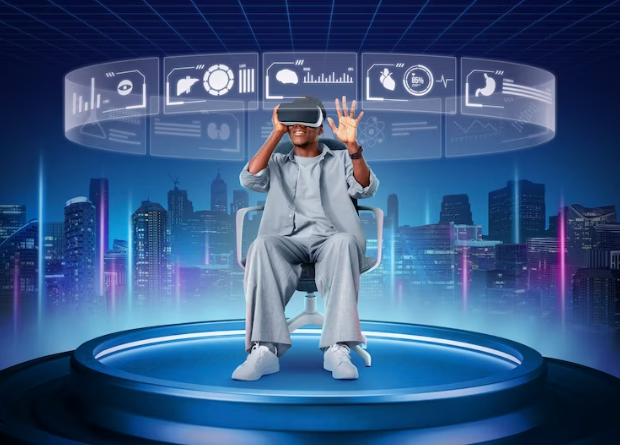Introduction:
In the ever-expanding realm of technology, the metaverse has emerged as the next frontier—a digital universe where the lines between reality and virtual spaces blur. From its conceptualization in science fiction to the current metaverse mania, this blog explores the evolution of virtual realities and the profound impact they have on our lives.
The Genesis of the Metaverse:
1. From Sci-Fi Dreams to Digital Realities:
Coined by Neal Stephenson in “Snow Crash” (1992), the term “metaverse” transitioned from a literary concept to a technological ambition. Innovators in the tech industry have since endeavored to turn this sci-fi dream into a tangible digital experience.
2. Early Virtual Worlds:
Platforms like Second Life in the early 2000s pioneered virtual worlds where users could create avatars, socialize, and even establish virtual businesses. While rudimentary compared to today, these platforms laid the groundwork for the metaverse’s eventual evolution.
The Current Landscape:
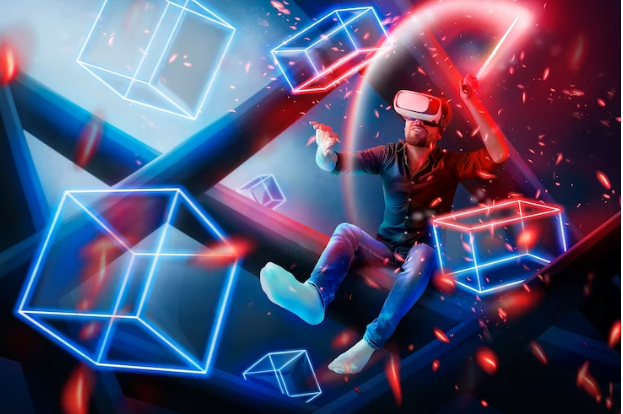
1. Social Metaverse Platforms:
Tech giants like Facebook (now Meta) are investing substantially in developing social metaverse platforms. These platforms aim to extend the social media experience into immersive digital spaces, redefining how we connect, collaborate, and share experiences.
2. Decentralized and Blockchain-Based Metaverses:
The integration of blockchain technology has given rise to decentralized metaverses, where ownership of digital assets is secured through blockchain. Platforms such as Decentraland and CryptoVoxels empower users to buy, sell, and trade virtual real estate, blurring the lines between physical and digital domains.
3. Emergence of the Creator Economy:
The metaverse has given birth to a thriving creator economy, where individuals can monetize their talents and creations. Virtual concerts, art galleries, and unique digital experiences have created new avenues for creators to showcase and commercialize their work.
Gaming and the Metaverse:
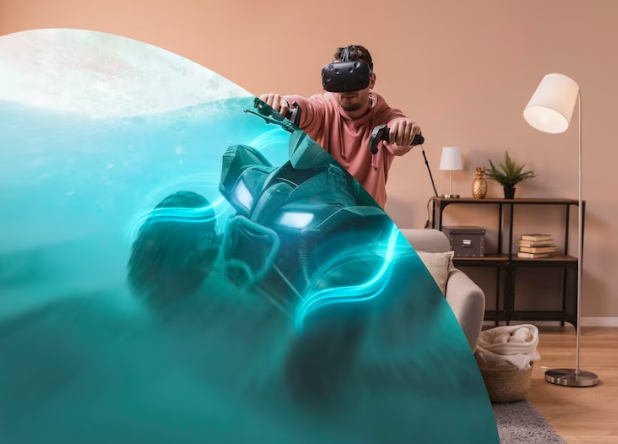
1. Gaming as a Gateway:
The gaming industry serves as a primary catalyst for metaverse development. Games like World of Warcraft and Fortnite set the stage for interconnected digital realms, where players immerse themselves in expansive virtual adventures.
2. Emergence of GameFi:
GameFi, the integration of blockchain into gaming, has introduced new economic models. Players can earn and trade blockchain-based assets within the game, giving virtual achievements tangible real-world value.
3. Collaboration Between Gaming and Traditional Entertainment:
The metaverse has seen a convergence of gaming and traditional entertainment, with musicians, filmmakers, and artists using virtual spaces to host events, premieres, and interactive experiences.
Work and Education in the Metaverse:
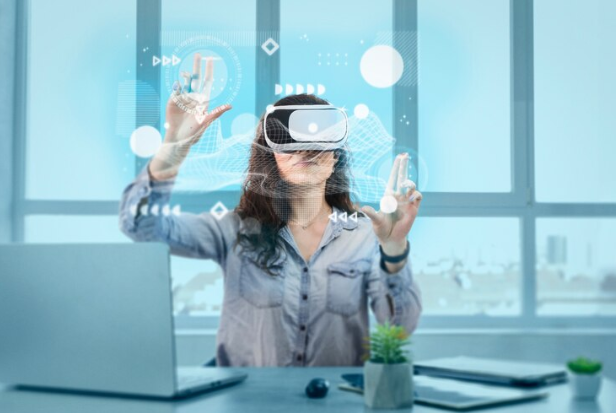
1. Virtual Offices and Remote Collaboration:
The metaverse is reshaping the way we work, with virtual offices becoming a reality. Companies are exploring collaborative platforms where employees, regardless of physical location, can meet, brainstorm, and work together in a virtual environment.
2. Immersive Learning Experiences:
Educational institutions are experimenting with metaverse-based learning environments. These immersive experiences offer students the opportunity to explore historical sites, conduct virtual experiments, and engage in interactive lessons.
3. Professional Development and Training:
The metaverse is becoming a valuable space for professional development and training programs. Industries such as healthcare, aviation, and manufacturing use virtual simulations to train employees in realistic yet risk-free environments.
Challenges and Concerns:

1. Privacy and Security:
As users spend more time in digital realms, providing the privacy and security of private data becomes paramount. The metaverse raises significant concerns about data protection and unauthorized access.
2. Inclusivity and Accessibility:
Bridging the digital divide and making virtual experiences inclusive for people of all backgrounds and abilities is a significant challenge. Efforts must be made to ensure that the benefits of the metaverse are accessible to everyone.
3. Ethical Considerations in Virtual Environments:
The immersive nature of the metaverse brings forth ethical considerations. From virtual property rights to digital identity, establishing ethical guidelines for behavior within these digital spaces is essential.
The Future of the Metaverse:
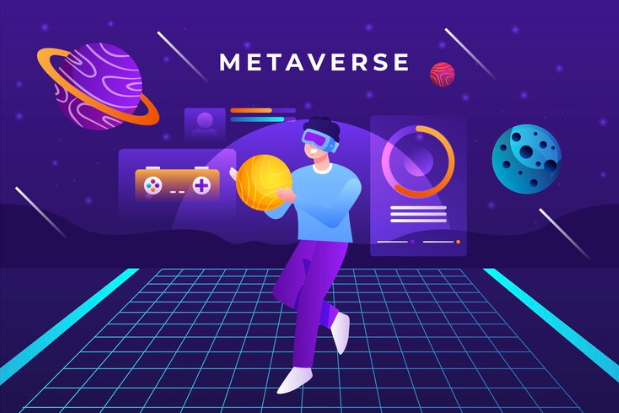
1. Integration with Augmented Reality (AR):
The future may witness seamless integration between the metaverse and augmented reality (AR). AR glasses and devices could become portals through which users access immersive digital experiences, enhancing the blending of physical and virtual realms.
2. Economic and Social Paradigm Shifts:
The metaverse has the potential to usher in significant economic and social shifts. Virtual economies, digital currencies, and new forms of social interaction could redefine how we perceive and engage with reality.
3. Regulatory Frameworks and Ethical Considerations:
Developing robust regulatory frameworks and ethical guidelines will be crucial as the metaverse expands. Striking a balance between innovation and ethical considerations will be pivotal in navigating the challenges posed by this evolving digital landscape.
4. AI Integration and Dynamic Environments:
The integration of artificial intelligence (AI) may result in dynamic and responsive virtual environments. These environments could adapt to user behavior, providing personalized and evolving experiences within the metaverse.
Conclusion:
Metaverse mania represents a transformative moment in the evolution of digital realities. From its origins in science fiction to the current landscape of decentralized platforms, gaming innovations, and immersive work and education experiences, the metaverse is reshaping the way we perceive and interact with the digital world.


